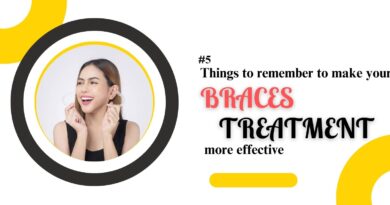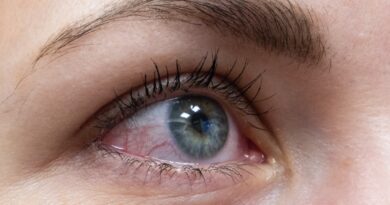How to Stop HIV Transmission and What to Do If You Have HIV
How to Stop HIV Transmission and What to Do If You Have HIV – Millions of people worldwide have been diagnosed with HIV (human immunodeficiency virus).
The virus has become one of the most common illnesses in the world, with 35 million people infected, according to the Centers for Disease Control and Prevention (CDC). HIV causes progressive destruction of the immune system, leading to acquired immunodeficiency syndrome (AIDS) and eventually death if left untreated.
The disease can be spread through blood or blood products, breast milk, semen, vaginal fluids, saliva, and any bodily fluid that contains even very small amounts of blood.
Contents
Myths about HIV transmission
The following are common myths regarding how to stop HIV transmission: There is a safe period of time after having sex. This isn’t true, since it takes just one infected partner with an active case of hiv in order for transmission to occur. Even if you aren’t infected yourself, using condoms with everyone you have sex with will help protect you from catching another STD or infection.

In addition, there isn’t any safe way for men who have sex with men (MSM) to prevent hiv-transmission from occurring except by using latex barriers such as condoms on penetrative and/or oral sex. Many people think that only gay men get hiv but that isn’t true either. Heterosexual couples can also be at risk for transmitting hiv between each other, even though they may not be aware of their status at first. Both parties should get tested regularly in order to keep each other safe. Another myth about how to stop HIV transmission is that only certain populations get it—this isn’t true either.
Use protection
That may seem like a no-brainer, but it bears repeating. HIV can be spread through all types of sex—vaginal, anal, oral—as well as blood-to-blood contact (e.g., sharing needles). Using protection is an essential step in stopping its transmission.
Condoms are particularly effective against HIV transmission because they prevent bodily fluids from coming into contact with each other and help reduce skin-to-skin contact; however, condoms do not protect against HPV or herpes transmission. If you’re on PrEP (Pre-Exposure Prophylaxis), you need a backup form of birth control while taking it.
Get tested
Once you’ve decided that you need to learn how to stop hiv transmission, it’s important that you act quickly. Go get tested now if you suspect that you might have contracted hiv. Your doctor can diagnose hiv with a blood test.
The Centers for Disease Control and Prevention recommends immediate testing if your risk behavior falls into any of these categories: unprotected sex (including anal or vaginal), needle sharing, being exposed to blood through violent trauma, being exposed by a health care worker who is not wearing protective gloves or other safety measures during an invasive procedure, or receiving treatment for another sexually transmitted disease in recent months. Even though there is no cure for HIV, beginning treatment early improves outcomes significantly.
Learn more
There are several things you can do to stop HIV transmission. Learn more about how to stop HIV transmission, including precautionary measures you can take if you’re living with HIV. A common misconception is that people who have HIV aren’t able to stop it from spreading, but that’s not true at all. By taking precautions and avoiding risky behaviors, it’s possible to stop or reduce transmission of HIV.
Every sexual encounter should be treated as potentially risky — meaning using a condom is always important. When engaging in sexual activity (especially during intercourse), make sure you’re both tested for STDs like chlamydia, gonorrhea, syphilis, hepatitis B and hepatitis C — all of which can spread more easily if someone has HIV.
HIV positive folks can stop HIV transmission by lowering their viral load. What exactly is a viral load? Well, it’s basically your body’s production of new viruses; if you have more than a certain number of active copies of HIV in your blood stream, you could be infecting others through sex. The Centers for Disease Control recommend that all people living with HIV keep their viral load under 200 copies/ml to reduce transmission.
In addition to receiving regular check-ups at local medical facilities, there are also online forums (such as PositiveLite) where you can discuss treatment and medication with other HIV positive individuals.
Support others in treatment
When someone has been diagnosed with HIV, they’re often looking for support. That’s why when you think of how to stop hiv transmission, you should know there are many organizations available that can provide your loved one with a lot of useful information as well as emotional support. One in particular is The AIDS Project (TAP), where you can find out how to best help a friend who has contracted HIV.
This organization also provides information on all things related to AIDS, from signs and symptoms of infection, ways it spreads and how those who have contracted it can live longer by undergoing antiretroviral therapy.
Support yourself in treatment
When dealing with a diagnosis of HIV, it’s important to find support. Connecting with a counselor or peer-to-peer group is helpful because they can help you create an individualized plan for managing your condition.
Some may even be familiar with how to stop hiv transmission, so it’s worthwhile to consult with them about your treatment options. Whether you choose meds or not, it’s vital that you take control of your health and make informed decisions about which treatments fit best into your life plan.
Care for your sexual partners
While you’re learning how to stop hiv transmission, it’s important that you also think about what your behavior means for others. For example, unprotected sex with multiple partners is a surefire way to quickly spread hiv. It’s imperative that you practice safe sex—every time—with every partner.
This might mean taking morning after pills for some partners or negotiating safer sex practices with others. Think about how your behavior affects others in sexual situations and make an effort to do something about it before another person contracts hiv or other sexually transmitted diseases from you!
Final Words
It’s no secret that people are still dying of AIDS, even though there is medication available now that can stop HIV from developing into AIDS. Knowing how to stop HIV transmission before it happens and knowing what you need to do if you already have HIV can mean a difference between life and death. This information is intended for adult audiences only; if you’re not at least 18 years old, please exit now.
Before we begin our discussion on how to stop hiv, let’s clarify some common misconceptions about hiv: If you have ever had unprotected sex with an infected person (or someone who says they were infected) then you are more likely than not one of the forty-one million people who has been exposed by hiv worldwide.




